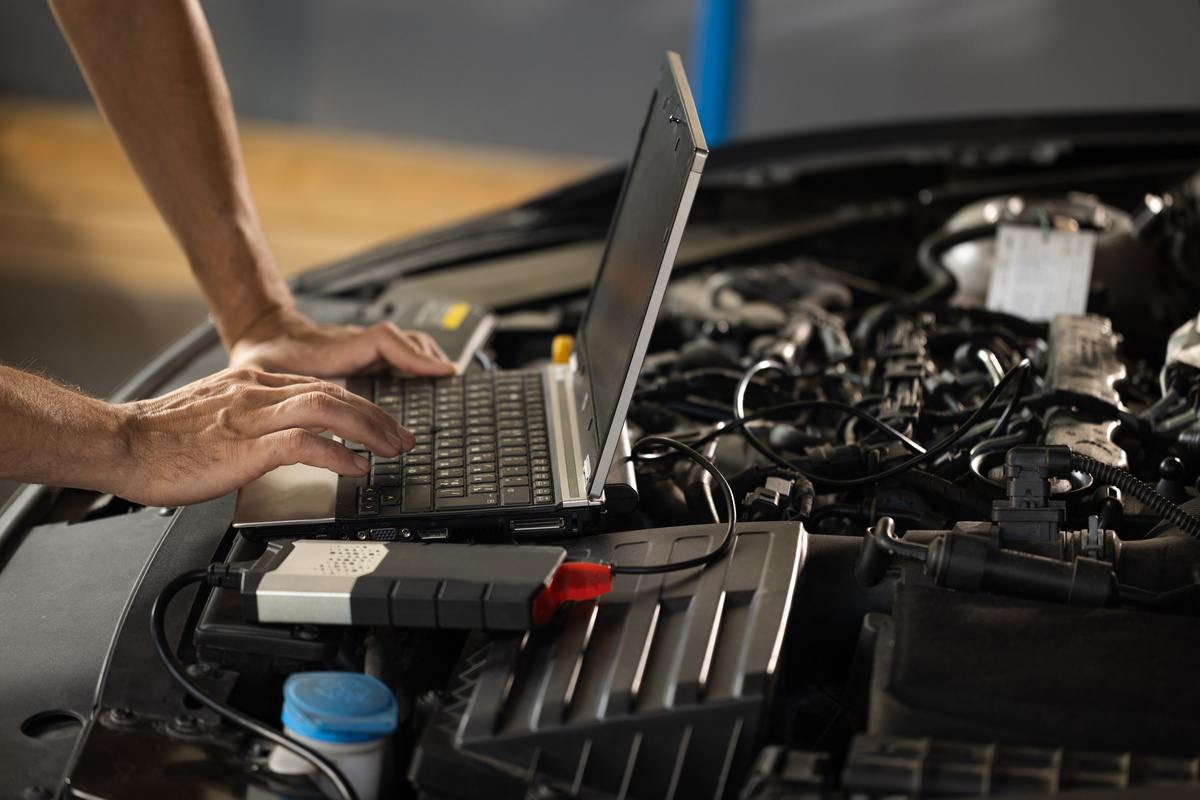When it comes to maintaining a vehicle, many car owners often wonder, what does an engine diagnostic test do?. In order to ensure that your vehicle remains in top-notch condition, understanding the importance of engine diagnostics is vital. This article will delve deep into what an engine diagnostic test entails, its numerous benefits, and how it can save you from hefty repair costs in the long run.

Introduction to Engine Diagnostic Tests
An engine diagnostic test is a crucial aspect of modern automotive maintenance. With advancements in technology, these tests have become more sophisticated and comprehensive. The primary aim of an engine diagnostic test is to identify any issues or malfunctions within a car’s engine and related systems. This enables timely intervention and repair, ensuring the vehicle’s longevity and optimal performance.
The Importance of Engine Diagnostics
Understanding its importance can greatly benefit car owners. Regular diagnostic tests can detect minor issues before they escalate into major problems. This preventative approach not only ensures the safety of the vehicle and its passengers but also minimizes repair costs. In addition, diagnostic tests contribute to improved fuel efficiency and reduced emissions, aligning with environmental standards and promoting sustainability.
How Engine Diagnostic Tests Work
The process of conducting an engine diagnostic test involves connecting a specialized computer interface to the vehicle’s onboard diagnostic system (OBD-II). This system is designed to monitor and record data from various sensors and electronic components in real time. The computer interface reads this data and identifies any error codes or abnormalities, which can then be translated into specific issues within the engine or other systems.
Common Components Tested During Diagnostics
During an engine diagnostic test, several key components are thoroughly examined. These include:
- Engine Control Unit (ECU)
- Transmission
- Emissions System
- Fuel Injection System
- Ignition System
- Exhaust System
- Brake System
The Role of OBD-II in Engine Diagnostics
One of the most significant advancements in engine diagnostics is the On-Board Diagnostics II system or OBD-II. This system allows for standardized communication between the vehicle’s electronic control modules and the diagnostic equipment, enabling a more accurate and efficient diagnosis of issues.
The Evolution of Diagnostic Technology
Over the years, diagnostic technology has evolved significantly. From the early days of mechanical inspections to today’s sophisticated computerized systems, the journey has been remarkable. Modern diagnostic tools now offer more precise and detailed insights into a vehicle’s health, making it easier for technicians to pinpoint issues and recommend appropriate solutions.
Benefits of Advanced Diagnostic Tools
Advanced diagnostic tools provide numerous benefits, including:
- Accurate and comprehensive analysis
- Real-time monitoring and reporting
- Early detection of potential issues
- Reduced diagnostic time
- Enhanced repair accuracy
Why Regular Engine Diagnostics are Essential
Regular engine diagnostics play a critical role in maintaining a vehicle’s overall health. By scheduling routine diagnostic tests, car owners can:
- Ensure optimal engine performance
- Identify potential issues before they become serious
- Maintain fuel efficiency
- Reduce emissions
- Extend the lifespan of the vehicle
Cost-Effective Maintenance
Investing in regular diagnostic tests can lead to significant long-term savings. By identifying and addressing minor issues early, car owners can avoid costly repairs and major breakdowns. Additionally, maintaining the vehicle’s health through routine diagnostics can enhance its resale value.
Understanding Diagnostic Trouble Codes (DTCs)
Diagnostic Trouble Codes (DTCs) are alphanumeric codes stored by the vehicle’s OBD-II system when it detects an issue. These codes provide valuable information about the nature and location of the problem, helping technicians diagnose and fix the issue more efficiently.
Common Diagnostic Trouble Codes
Some common Diagnostic Trouble Codes include:
- P0300: Random/Multiple Cylinder Misfire Detected
- P0171: System Too Lean (Bank 1)
- P0420: Catalyst System Efficiency Below Threshold (Bank 1)
- P0455: Evaporative Emission System Leak Detected (Large Leak)
- P0507: Idle Control System RPM Higher Than Expected
The Future of Engine Diagnostics
As automotive technology continues to advance, the future of engine diagnostics looks promising. Innovations such as artificial intelligence (AI), machine learning, and predictive analytics are poised to revolutionize the field, offering even more accurate and efficient diagnostic solutions.
AI and Machine Learning in Diagnostics
AI and machine learning technologies have the potential to transform engine diagnostics by enabling predictive maintenance. These technologies can analyze vast amounts of data and identify patterns, allowing for early detection of issues and timely intervention.
Benefits of Predictive Maintenance
Predictive maintenance offers several advantages, including:
- Reduced downtime
- Lower maintenance costs
- Increased vehicle reliability
- Enhanced safety
- Prolonged vehicle lifespan
Conclusion
In conclusion, an engine diagnostic test is an indispensable tool for maintaining the health and performance of your vehicle. By understanding what an engine diagnostic test does and its numerous benefits, car owners can make informed decisions about their vehicle maintenance, ensuring safety, reliability, and cost-effectiveness.
For more information on the importance of engine diagnostics, you can refer to this detailed guide.

FAQs
1. How often should I have an engine diagnostic test done?
It is recommended to have an engine diagnostic test performed at least once a year or whenever you notice any unusual performance issues with your vehicle. Regular diagnostics can help detect and address potential problems early on.
2. Can an engine diagnostic test prevent major breakdowns?
Yes, by identifying and addressing minor issues early, engine diagnostic tests can prevent major breakdowns and costly repairs. Regular diagnostics ensure your vehicle remains in optimal condition.
3. Is an engine diagnostic test expensive?
The cost of an engine diagnostic test can vary, but it is generally affordable. Considering the potential savings from avoiding major repairs, investing in regular diagnostics is a cost-effective maintenance strategy.
